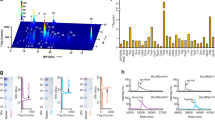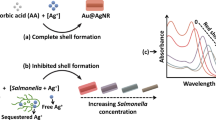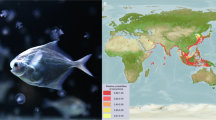Abstract
WE have read with interest the recent letter by Beasley and Held1 which voices reservations concerning the origins of the 108mAg and 110mAg reported by us2. Their comments are well thought out and deserve a careful reply.
This is a preview of subscription content, access via your institution
Access options
Subscribe to this journal
Receive 51 print issues and online access
$199.00 per year
only $3.90 per issue
Buy this article
- Purchase on SpringerLink
- Instant access to the full article PDF.
USD 39.95
Prices may be subject to local taxes which are calculated during checkout
Similar content being viewed by others
References
Beasley, T. M., and Held, E. E., Nature, 230, 450 (1971).
Grismore, R., Folsom, T. R., and Young, D. R., Nature, 227, 941 (1970).
Kistner, O. C., and Sunyar, A. W., Phys. Rev., 143, 918 (1966).
Fedral Radiation Council, Report No. 4—Estimates and Evaluation of Fallout in the United States from Nuclear Weapons Testing conducted through 1962, 5 (US Government Printing Office, Washington DC, 1963).
Russell, I. J., and Griffith, R. V., US Atomic Energy Comm. Health and Safety Lab. Quart. Rep., HASL-142, 306 (1964).
Author information
Authors and Affiliations
Rights and permissions
About this article
Cite this article
GRISMORE, R., FOLSOM, T. & YOUNG, D. Silver 108m Dating in Marine Organisms. Nature 234, 347 (1971). https://doi.org/10.1038/234347a0
Received:
Issue date:
DOI: https://doi.org/10.1038/234347a0



